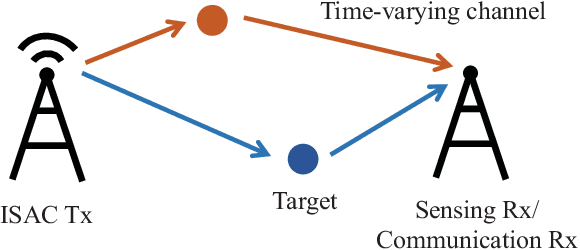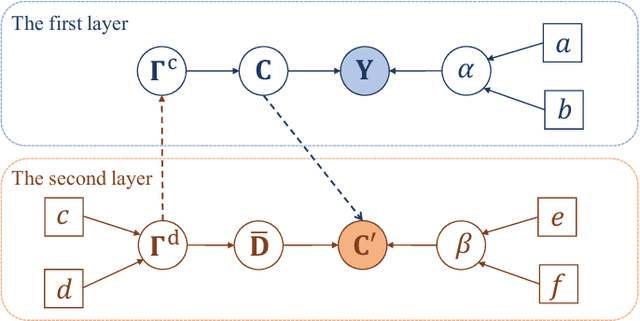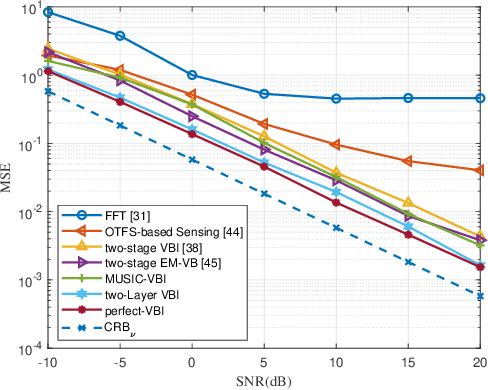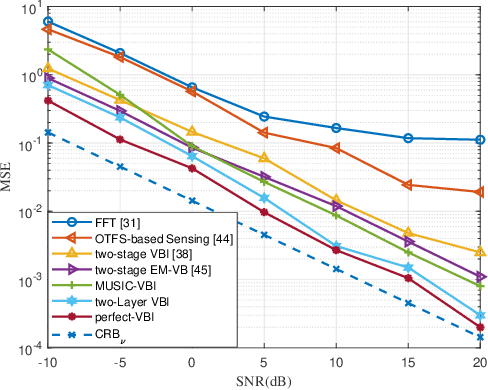Bayesian Sensing for Time-Varying Channels in ISAC Systems
Paper and Code
Apr 21, 2025



Future mobile networks are projected to support integrated sensing and communications in high-speed communication scenarios. Nevertheless, large Doppler shifts induced by time-varying channels may cause severe inter-carrier interference (ICI). Frequency domain shows the potential of reducing ISAC complexity as compared with other domains. However, parameter mismatching issue still exists for such sensing. In this paper, we develop a novel sensing scheme based on sparse Bayesian framework, where the delay and Doppler estimation problem in time-varying channels is formulated as a 3D multiple measurement-sparse signal recovery (MM-SSR) problem. We then propose a novel two-layer variational Bayesian inference (VBI) method to decompose the 3D MM-SSR problem into two layers and estimate the Doppler in the first layer and the delay in the second layer alternatively. Subsequently, as is benefited from newly unveiled signal construction, a simplified two-stage multiple signal classification (MUSIC)-based VBI method is proposed, where the delay and the Doppler are estimated by MUSIC and VBI, respectively. Additionally, the Cram\'er-Rao bound (CRB) of the considered sensing parameters is derived to characterize the lower bound for the proposed estimators. Corroborated by extensive simulation results, our proposed method can achieve improved mean square error (MSE) than its conventional counterparts and is robust against the target number and target speed, thereby validating its wide applicability and advantages over prior arts.
 Add to Chrome
Add to Chrome Add to Firefox
Add to Firefox Add to Edge
Add to Edge